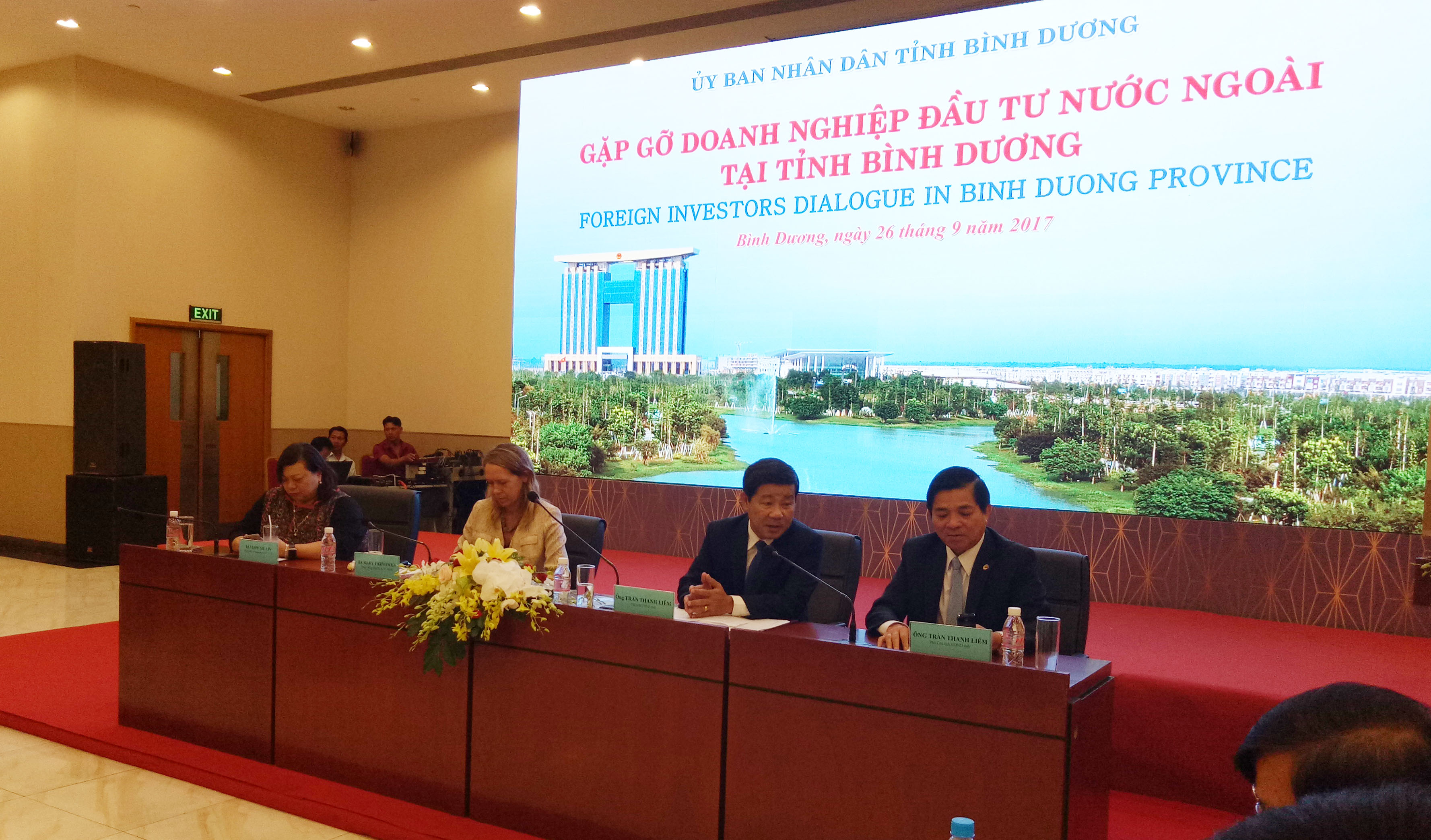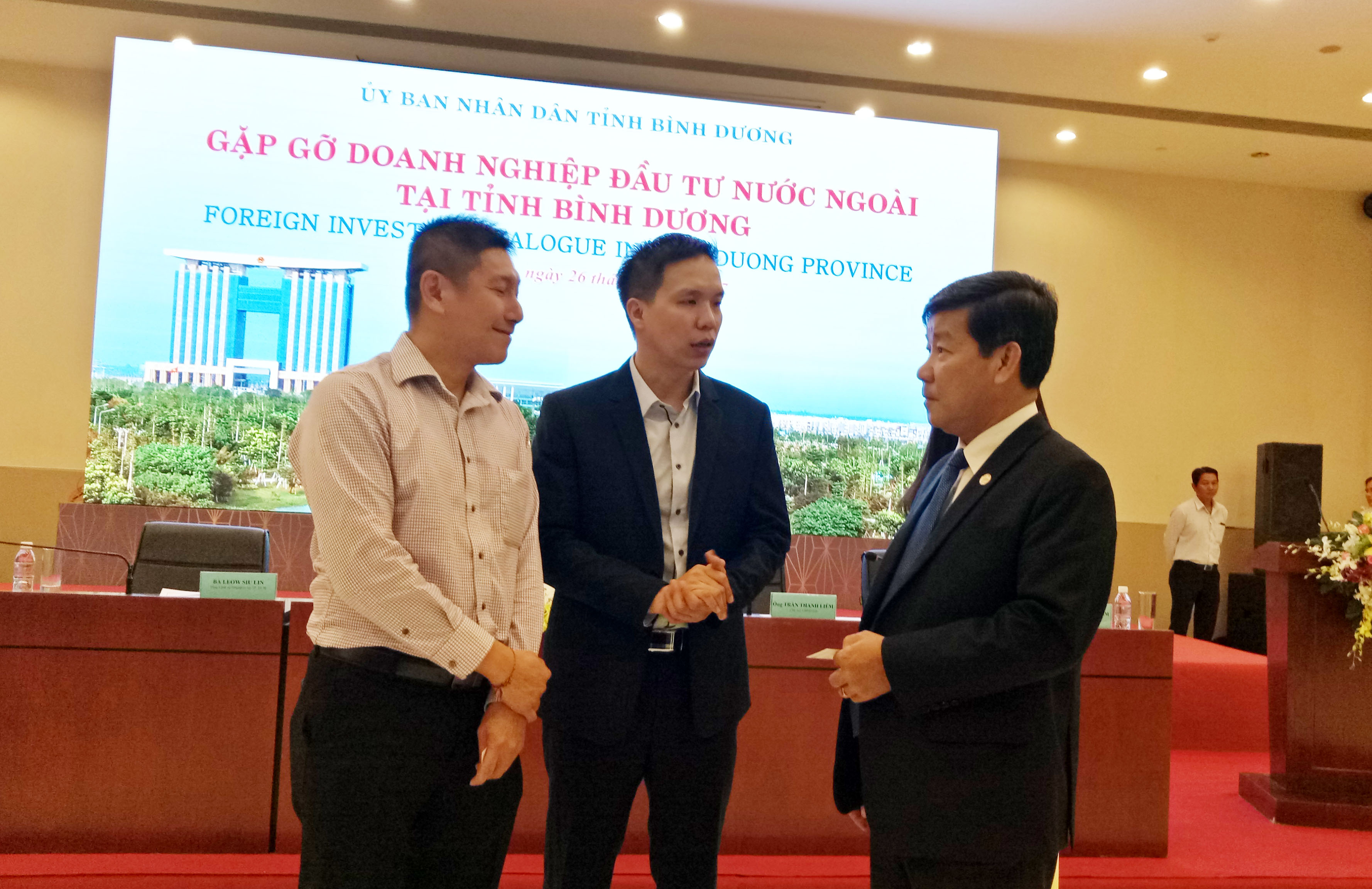Vietnam's second highest foreign direct investment (FDI) receiver Binh Duong province announced that in the first nine months of 2017 it received a record in attracting FDI, reaching 140 per cent of its annual target.
According to Nguyen Thanh Truc, director of the Binh Duong Department of Planning and Investment Department, the total FDI volume recorded in the first nine months of the year in the province stood at nearly $1.97 billion, a jump of 27 per cent compared to the same period last year.
The FDI in Binh Duong, Truc said in the meeting with foreign investors on September 26, prioritising projects with high technology and large-scale ones on urban and service development.

| The Binh Duong People's Committee met foreign investors (Photo: Hong Son) |
In the first nine months, the province attracted 148 new projects valued at a total of $1.165 billion. There were another 87 capital expansion projects adding a total of $765 million. About 90 per cent of these projects targeted industrial zones.
Binh Duong is now home to a total of nearly 3,000 FDI projects, worth over $27.7 billion, from 60 countries and territories.
In order to create a better investment climate, the province’s leaders and authorities work regularly with investors to learn about their difficulties and help them resolve issues.
Tran Thanh Liem, Chairman of the Binh Duong People’s Committee, said at in the meeting with foreign investors on September 26 that improving the infrastructure system, and creating open dialogues with foreign investors were the key methods to attract investment flows to the province.
“Binh Duong has become a popular investment destination, especially for Korean, Japanese, Singaporean, and Taiwanese investors. It proves the province’s role in Vietnam’s FDI attraction in general and the Southern Economic Zone’s in particular,” Liem said.

| Tran Thanh Liem, Chairman of the Binh Duong People's Committe talked with representatives of foreign investors (Photo: Hong Son) |
During the past years, Binh Duong has been investing in infrastructure, especially the transport network, which facilitates connections with Ho Chi Minh City, the Mekong Delta, Southeast Vietnam, and the southern Central Highlands.
Many important transport routes have been invested and put into operation, such as Binh Duong Boulevard and My Phuoc-Tan Van Highway, which connects local industrial parks (IPs) with seaports and airports.
Binh Duong is also the leading province in developing IPs, new urban areas, and services. Currently, the province has 28 IPs with a total area of over 10,560 hectares and 71 per cent of the occupancy rate. It also has 11 industrial clusters sprawling over a total of 802ha with a 55 per cent of the occupancy rate.
By 2020, the province will have 34 IPs with a total area of 14,790ha.
By Bich Ngoc / VIR